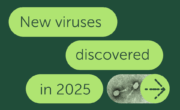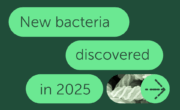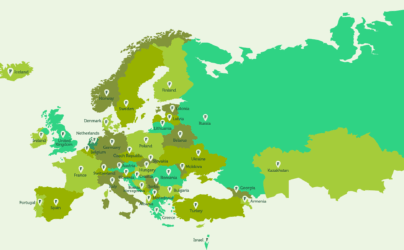23-12-2025
We have finally arrived at the last edition of[...]

23-12-2025
We have finally arrived at the last edition of[...]

16-12-2025
In this third edition of our "New Microbes[...]

09-12-2025
Every year, scientists stumble upon viruses[...]

02-12-2025
As 2025 comes to an end, it is a great time to[...]

Set up in 1974, today we are a growing coalition of 55 Member Societies from 40 countries. As a not-for-profit organization, our mission is to create spaces for microbiologists to convene so that they can foster scientific communities, uplift the next generation of scientists, and drive science. Through the FEMS journals, our communities peer review, publish, and promote high-quality scientific research. FEMS creates top-in-class events, like the FEMS MICRO: Congress & Exhibition, our Summer School for Postdocs, and International Microorganism Day. Our vision is magnifying microbial impact to develop powerful microbial solutions to humanity's greatest challenges.
More infoWe are pleased to invite you to the 10th International Conference on Polar and Alpine Microbiology, scheduled to[...]
Welcome to the Research Workshop on Bacillus | 4th – 6th March 2026, Umeå University, Sweden This workshop seeks to[...]
Welcome to the FEMS webinars, online events to help you take part in scientific discussion, wherever you are.[...]
This report presents the results of five EU Science Diplomacy Working Groups that were established by the European[...]
All but one of the not-for-profit FEMS journals are fully open access (OA), with one journal, FEMS Microbiology Letters, offering free-to-publish and OA options. Open access is key to supporting the FEMS mission of disseminating high quality research as widely as possible: when high quality, peer reviewed sound science is open access, anyone, anywhere in the world with an internet connection, can read it.
Fuelled by innovation, expertise, and community, FEMS MICRO 2025 brought together more than 2,000 attendees from over 95 countries for four dynamic days of collaboration and exchange. Watch the recap video to relive the highlights and save the date for FEMS MICRO 2027 in Ljubljana, Slovenia from 5-8 July 2027.